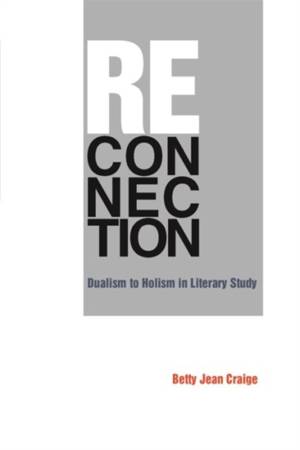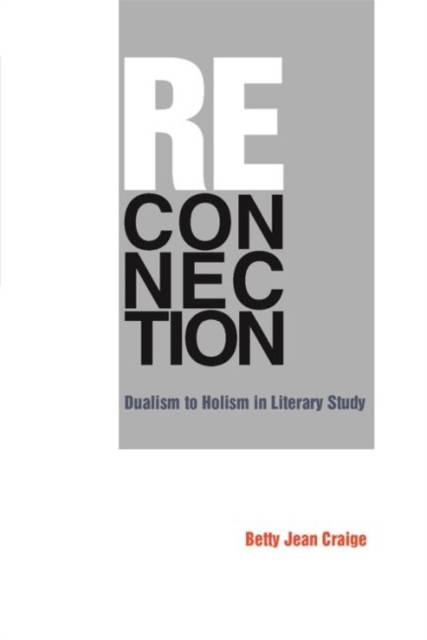
- Afhalen na 1 uur in een winkel met voorraad
- Gratis thuislevering in België vanaf € 30
- Ruim aanbod met 7 miljoen producten
- Afhalen na 1 uur in een winkel met voorraad
- Gratis thuislevering in België vanaf € 30
- Ruim aanbod met 7 miljoen producten
Zoeken
€ 41,45
+ 82 punten
Omschrijving
An openly polemical work, Reconnection seeks a way of returning the humanities to their place at the center of human life. For the past three hundred years, to study the humanities has implied an isolation from politics, science, and society. Literary studies, in particular, have often fallen prey to this isolation by viewing novels, plays, and poems as impassive verbal icons, as texts to be explicated without reference to political context or social significance.
Seeking a way of ending this self-imposed exile of the humanities from the turmoil of social issues and concerns, Betty Jean Craige looks to the contextual, nondisciplinary thought that began to take hold in academia during the 1960s--a development that echoed the rising political awareness brought to the universities by the Vietnam War, the civil rights movement, and women's liberation. Recently, this emergent openness in the university has come under attack by conservative critics who have sought to roll back the movement for nontraditional inquiry in academia and to reassert the dominance of hierarchical, canonical thought. By tracing the ideological history of literary studies, Craige shows that this reactionary goal of reimposing canonical thought is, in time, doomed to failure--the age of the discipline is over. In its place, Craige calls for the creation of a holistic system of learning that will emphasize interdisciplinary and nondisciplinary research, reconnecting literary studies with history and philosophy, with science and politics, restoring literature itself to a central place in our intellectual discourse and social debate.Specificaties
Betrokkenen
- Auteur(s):
- Uitgeverij:
Inhoud
- Aantal bladzijden:
- 168
- Taal:
- Engels
Eigenschappen
- Productcode (EAN):
- 9780820338064
- Verschijningsdatum:
- 1/11/2010
- Uitvoering:
- Paperback
- Formaat:
- Trade paperback (VS)
- Afmetingen:
- 152 mm x 229 mm
- Gewicht:
- 254 g

Alleen bij Standaard Boekhandel
+ 82 punten op je klantenkaart van Standaard Boekhandel
Beoordelingen
We publiceren alleen reviews die voldoen aan de voorwaarden voor reviews. Bekijk onze voorwaarden voor reviews.











